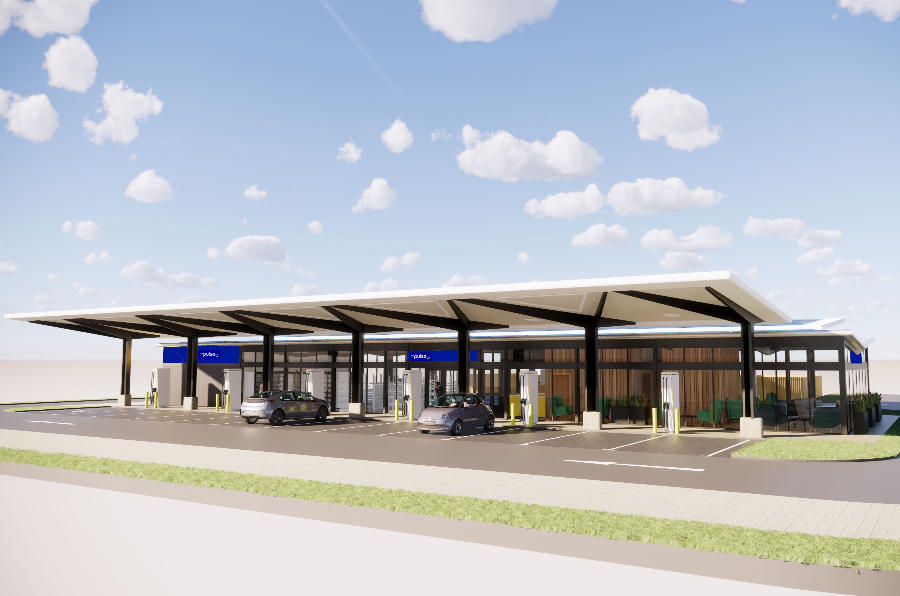Charging provider aims for 16,000-strong charging network, with focus on ultra-fast chargers on motorways.
BP Pulse plans to double the number of EV chargers in its network to 16,000 by 2030, with ultra-fast charging hubs set to appear on high-traffic roads such as motorways.
The charging company – formerly known as BP Chargemaster – will work in partnership with The EV Network (EVN), a charging infrastructure development company. While not in Australia now, it is rapidly expanding in Europe as EV sales climb.
The first of these charging hubs will open later in 2021 with 24 individual charging points, although the location of the site has yet to be revealed.
EVN will develop the facilities, some of which will offer drivers food, drink and other convenience services while their EVs charge.
“We’re building a charging network that will give consumers the confidence to make the switch to EVs, knowing they can get the charge they need in the right places,” said BP Pulse CEO Matteo de Renzi.
“We’re taking another step forward in our commitment to make ultra-fast charging widely accessible across the UK, including in easy reach of the motorway network.
“These new hubs will complement BP Pulse’s existing plans to expand the number of ultra-fast chargers on BP’s forecourts, and it’s exciting to be launching this new additional option for drivers.”
BP Pulse estimates that charging on its network will increase 30-fold by 2030.
“This ground-breaking agreement with BP Pulse has got 2021 off to a racing start,” said Reza Shaybani, co-founder and CEO of EVN. “As the largest public charge point operator in the market, BP Pulse is a perfect partner for EVN to deliver critically required EV charging infrastructure nationwide.
“Together we will be fuelling growth in a vital part of the UK’s green economy, making a reliable national network of EV charging stations a reality for fast growing number of electric vehicle drivers.”
Earlier this year, BP Pulse committed $3.6 million to help local authorities upgrade and replace EV chargers across the UK.
It has already invested more than $720,000 in upgrading more than 50 existing chargers, which were typically installed using government funding around 10 years ago and are owned by local authorities.
Some of these older devices are now “no longer usable” by EV drivers, according to BP Pulse, which aims to “radically improve” the country’s oft-criticised charging network.
Another $1.26m is now set to be allocated to the replacement and upgrading of another 300-plus units across the country, as part of an overall $3.6m fund set aside by the company.
In Milton Keynes, BP Pulse has replaced the majority of chargers from third-party manufacturers with more powerful, UK-made 50kW units featuring contactless payment terminals.
According to BP Pulse, the upgrades allow the company to provide “more effective operational support and ongoing maintenance of the network”.
BP Pulse will work together with local authorities to deliver the upgrades. It will focus on early chargers that, it claims, were installed a decade ago without “long-term sustainability in mind” and have suffered from underinvestment.
At the time, de Renzi said: “While we remain focused on expanding our network, in particular with the proliferation of convenient ultra-fast charging, we know that many of the issues experienced by drivers come from legacy charging infrastructure, so our investment in upgrading it will significantly improve the experience of EV drivers across the country.”
Joe Holding




